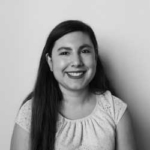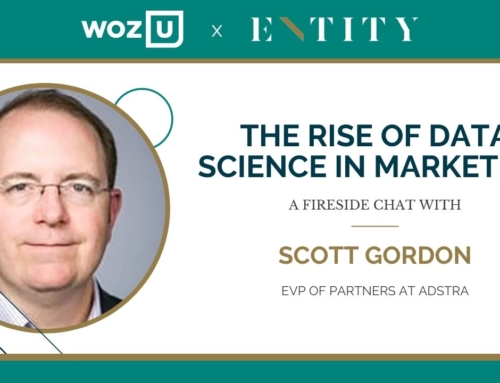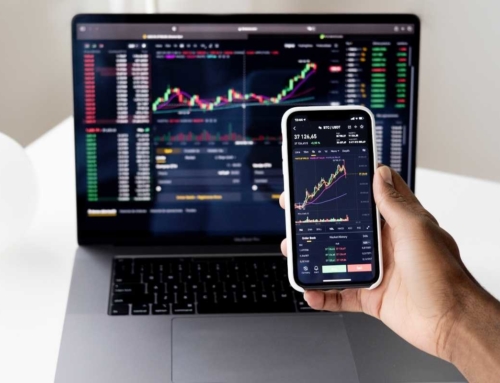Data science is propelling health science forward in new ways, providing health professionals with new tools to help patients and share research.
To provide a more in-depth perspective of how open data science initiatives are spreading innovation in health science, ENTITY Academy And Woz U hosted a Fireside Chat entitled “Changing the World With Open Data Science Initiatives.”
The Fireside Chat featured Kristin Kostka, a computational epidemiologist and incoming director of the OHDSI Center, and was moderated by TV News Correspondent Stephanie Stanton.
Observational Health Data Science and Informatics (OHDSI)
The OHDSI community includes over 2,500 unique users across six continents. There is also a data-sharing network of 100 databases and more than half a billion patient records.
During the Fireside Chat, Kostka stressed that the OHDSI Center involves many sectors, including health, technology, and more.
By collectively bringing together these individuals and sharing research, OHDSI aims to create “a world in which observational research produces a comprehensive understanding of health and disease. Research is shared through the community forum’s international network, which allows health professionals to review and even repeat findings.”
Kostka became a part of OHDSI six years ago and said community members were always welcoming and provided a seat at the table for her.
She has served a prominent role in the OHDSI Center, connecting organizations with a vast observational health data network that spans the world. As part of the OHDSI community, Kostka uses large-scale analytics to help hospitals and health providers.
A Glimpse Into Epidemiology and Health Science Careers
Careers in health and data science are among the best jobs in the US, according to Glassdoor and U.S. News and World Report. Jobs in these fields enjoy a high median salary and steady job growth. People currently employed in these professions also report having fairly high levels of job satisfaction.
Epidemiologists are in charge of monitoring public health programs. They may plan a study to better understand a disease or analyze large amounts of data and present findings to peers and health organizations.
Kostka also suggests a few other career options for people who are interested in health science careers. ETL developers, health care data scientists, or careers in real-world data pharmaceuticals may be interesting career possibilities.
How Data Science Efficiently Aids Health Science Professionals
During the Fireside Chat, Kostka shared that data science has become incredibly valuable to health science. Health industry professionals require programs and networks that aid with cleaning and analyzing large sets of data.
Technology has provided efficient tools which outperform more simple programs like Microsoft Excel. Model development and machine learning help industry professionals tackle a specific question, test out the problem, and find a solution. Programs created through programming languages have allowed for greater storage capabilities and a much more efficient process.
Data science has also progressed communication between researchers by strengthening both accessibility and privacy. Through artificial intelligence, personal information regarding patients can be anonymized. Anonymizing patient information adds an extra layer to open data while still allowing researchers to obtain real-world data sets.
How Data Science Helps Understanding of COVID-19
Data science has been incredibly impactful in understanding the pandemic.
Duncan Watts, a professor from the University of Pennsylvania, told Upenn Today that epidemiological models have helped in COVID-19 contact tracing, using real-world data instead of indirect data. Contact tracing was incredibly important during the beginning of the pandemic when health professionals wanted to understand how COVID-19 spread.
Data science has helped monitor environmental and socioeconomic factors that have been affected by the pandemic. Health professionals could advise when to open or close certain areas so that health and safety could be the No. 1 priority.
During the Fireside Chat, Kostka shared that the COVID-19 vaccination and long-term COVID prevention are prominent discussion topics at the moment. She suggests that if people are interested in learning more, they should show up to any open webinars regarding COVID-19.
Pursuing a Career in Data Science and Health Science
During the Fireside Chat, Kostka provided many tips for people interested in open data science initiatives or, more broadly, data science.
Many industry professionals have access to the same toolkit, so joining an open-source community could be a great option. People could dip their toes in the field, learn terminology, and network with other data science and health professionals.
In regards to skills needed for the field, it’s important to have an open mind because changes frequently occur.
“Don’t get married to technology,” said Kostka. “If you’re going down this journey, then you have to be willing to embrace our tech changes. It feels like with the weather, but every few years, something new comes up that’s trying to replace the other thing.”
Lastly, Kostka provided a few words of encouragement in regards to the job application process. Rather than worry about whether you meet all the criteria for a job position, Kostka recommends writing a good pitch that mentions practical experience.

Sophia Acevedo
Sophia Acevedo is a journalist based in Southern California. She is a 2020 graduate from California State University, Fullerton, and a proud Daily Titan alum.




